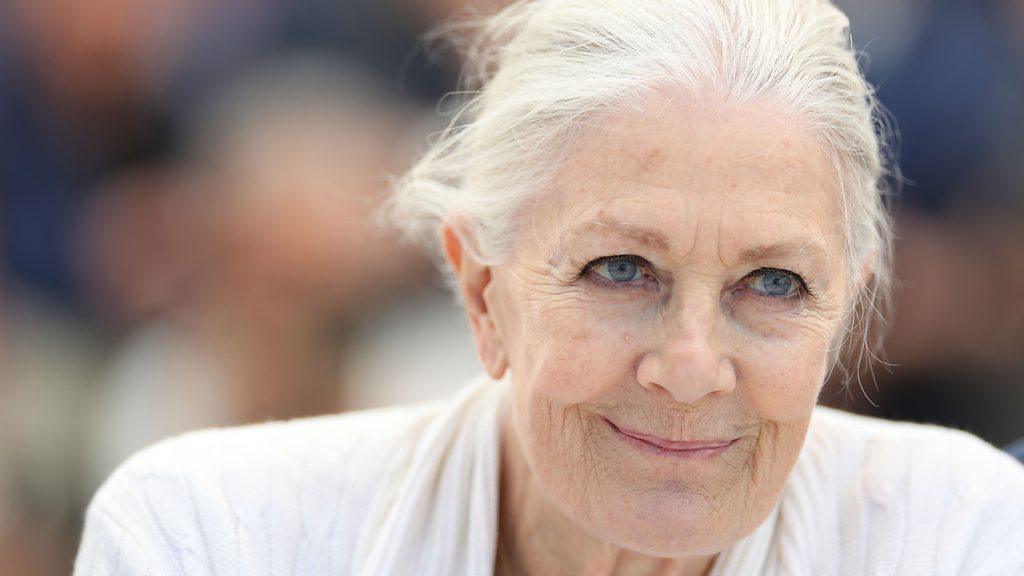Why Vanessa Redgrave's new play is a family affair
- Published
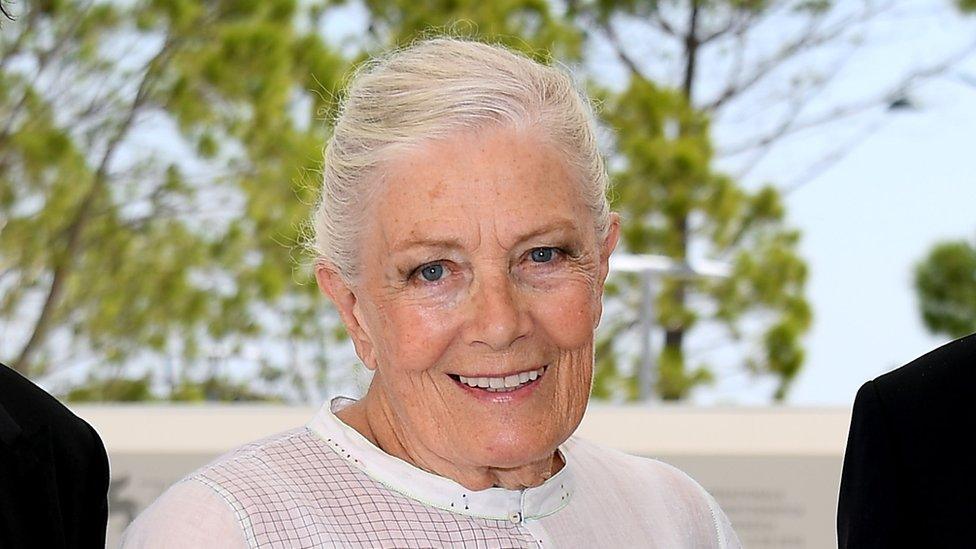
Redgrave at the Venice Film Festival in 2018
Throughout her acting career Vanessa Redgrave has attracted admiration and controversy in equal measure.
She doesn't hesitate to say what she thinks about politics and society.
Now on stage, she's exploring her own family and its friendships - but politics are never far away.
The first run of Vienna 1934 - Munich 1938 is short; for now Redgrave wants to experiment with how to use the stage to delve into the history of one of Britain's best-known acting families.
"It's a story that combines recollections, memoirs, music, poems and the notebooks and journals of members of my own family," she tells BBC News.
"But also it looks at our long connection with the wonderful poet Stephen Spender, he and his wife Natasha were great friends with my parents.
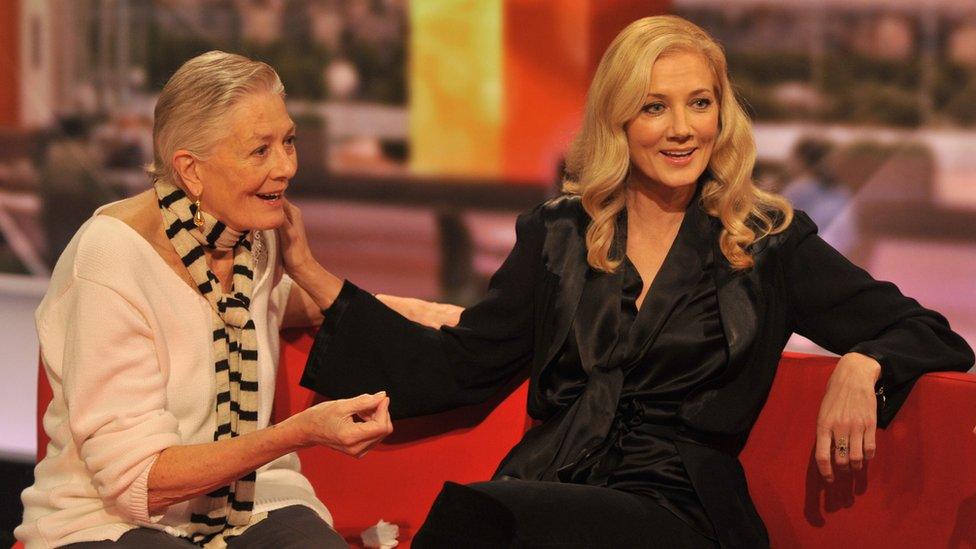
Redgrave on BBC Breakfast with her daughter Joely Richardson
"And we look at their perceptions of the 1930s and at what was going on politically, then we talk about what's happening in the world now.
"But I've tried not to take a very rigid approach, there are surreal moments too because life always has surreal moments."
Family connections
Redgrave, 82, has starred in more than 35 West End and Broadway productions, including As You Like It and Long Day's Journey into Night.
She has also had a successful career on screen, gaining six Oscar nominations for the likes of Treatment and Howards End.
In her upcoming play, she will be joined on stage by three other performers - one of them her granddaughter Daisy Bevan, daughter of Joely Richardson.
Vanessa's other daughter Natasha, who was married to Liam Neeson, died in a skiing accident a decade ago.
From 1938, when he starred in Hitchcock's The Lady Vanishes, her father Sir Michael Redgrave was also a major star in Britain.
"And the truth is it went to his head a little at times," she says.
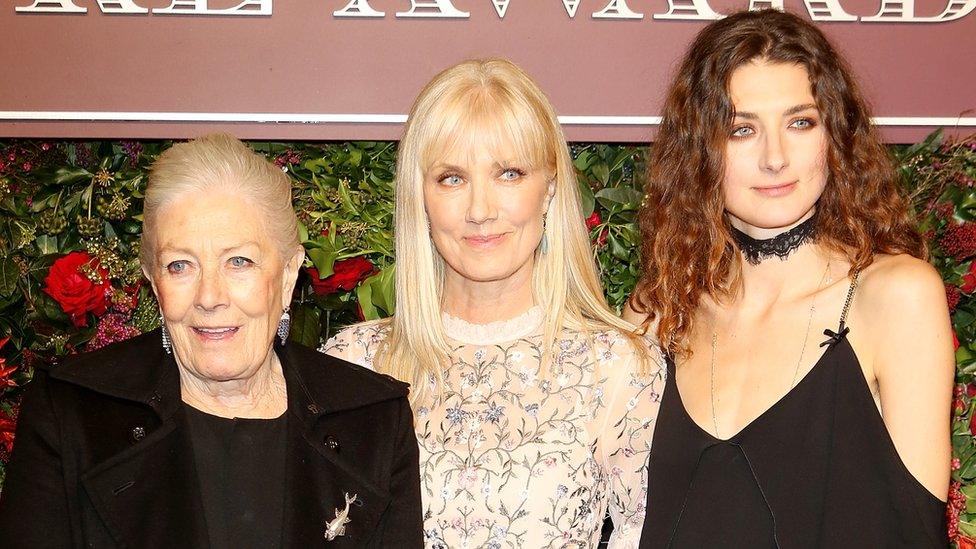
Redgrave with her daughter Joely Richardson and granddaughter Daisy Bevan, who is set to star in the play
"He would get a bit egocentric now and then, but that can happen to people in film, when they're surrounded by success and by endless praise.
"But in a way that's characteristic of life before the war. My father was also deeply political - he was a socialist which is partly why he and my mother (the actress Rachel Kempson) knew Stephen Spender.
"Intelligent people saw the rise of fascism and knew we needed to do something about it. We use some of Stephen's verse to recall all that.
"So the audience will hear about the trauma of the 1930s which I think holds lessons for us today.
"My father loved being part of a world which contained Louis MacNeice and Cecil Day Lewis - Dan Day Lewis's father - and Christopher Isherwood, who at one point was Stephen's lover.
"It was an extraordinary generation - though in Britain we've never seemed happy talking about an intelligentsia."
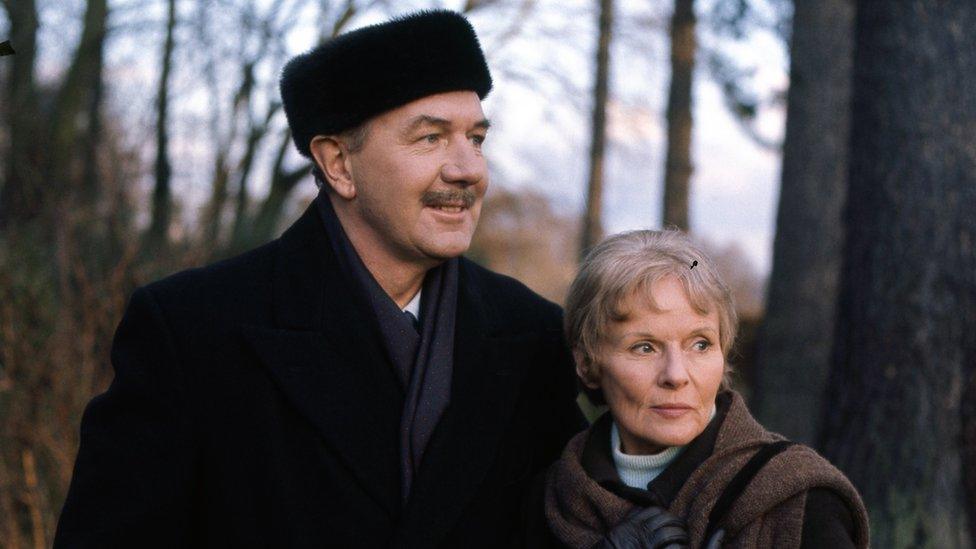
Sir Michael Redgrave in The Man Outside: The Last Target in 1977, alongside Ann Todd
Sir Michael Redgrave had a complex emotional life which involved men as much as women.
His daughter's play also shows Stephen Spender's deep affection for Tony Hyndman.
"Stephen and Tony were lovers decades before gay sex was legal. So we're looking at the cruelty of Britain in the 1930s - and not only as regards sexuality," Redgrave says.
Refugees as an inspiration
"One of the driving forces for me writing the play was to ask why in the 1930s the rest of Europe - and Britain in particular - didn't open their doors to many more Jewish refugees," she says.
"Virtually all Jewish refugees were refused, there was the Kindertransport but that was just 10,000 Jewish children and their poor parents weren't allowed in.
"That fact still haunts me and it terrifies me that we see a similar attitude to migrants today.
"Today's refugees come from Africa, Iraq, Syria, Afghanistan and these places are in terrifying conflicts and yet we think somehow it's right to accept very few of them or none.
"So I hope the new play will make people think about the parallels between what happened when my father was a young man and what's happening now."
The other true-life character who features heavily is Muriel Gardiner, who died in 1985.
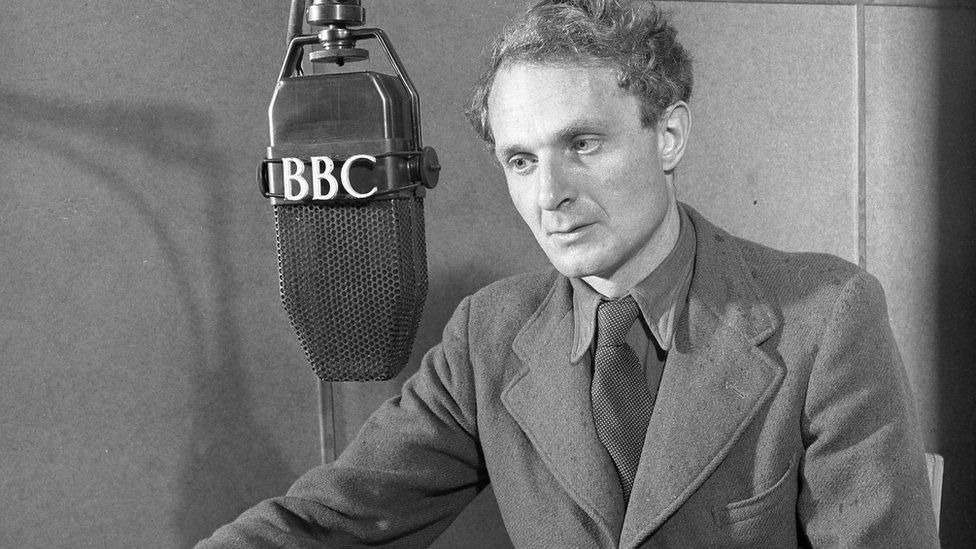
Poet Stephen Spender shown at the BBC in 1947
She was an American heiress who had lived in Vienna as a student. She had a love affair with Stephen Spender and used her great wealth to help Jews escape Austria before the Second World War broke out.
Gardiner is thought by some to be the inspiration for the title character in the 1977 film Julia.
Vanessa Redgrave won the Oscar for best supporting actress for playing the role - although she says that's not what fascinates her about Muriel Gardiner's story.
"I think theatre is about sharing knowledge - and people should know more about Muriel Gardiner, partly for what she did but also because it helps explain the years we're talking about," she explains.
Redgrave has just finished a run in American playwright Matthew Lopez's play The Inheritance, which started at the Young Vic and transferred to the West End.
It was about the generation of gay men in America who bore the lethal brunt of Aids. Two of the actors from the show, Robert Boulter and Paul Hilton, complete the cast of her play.
"I think Matthew Lopez wrote one of the great modern American dramas. He too was sharing knowledge - helping ensure that events quite recent to us aren't simply forgotten. I was so proud to be in that cast."
But for now Vanessa Redgrave's attention is on the 1930s in Europe and what ensued.
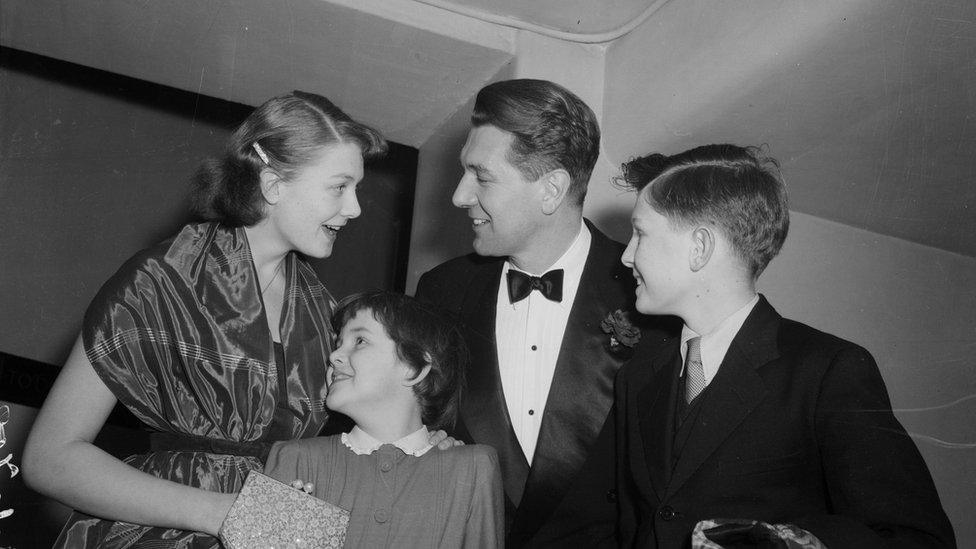
Michael Redgrave with his three children Vanessa, Lynn and Corin
Something she was keen to include was an old '78 recording from 1940 which the Redgrave family once owned but had lost - her father Michael singing If the Heart of a Man from The Beggar's Opera. When the crackly old recording finally turned up recently she cried.
But she doesn't want the whole thing to be historical or about her family.
"For years my whole being has been dedicated to human rights. We've just had the 70th anniversary of the ratification of the Universal Declaration of Human Rights - it is such a vital thing but if anything it now seems threatened. Human rights can not and should not depend upon politics," she says.
"I know one play won't have much effect on public opinion. But we have to focus on the things that need to be treasured."
Vienna 1934 - Munich 1938 is at the Rose theatre, Kingston from 7 - 9 February.

Follow us on Facebook, external, on Twitter @BBCNewsEnts, external, or on Instagram at bbcnewsents, external. If you have a story suggestion email entertainment.news@bbc.co.uk, external.
- Published19 May 2014
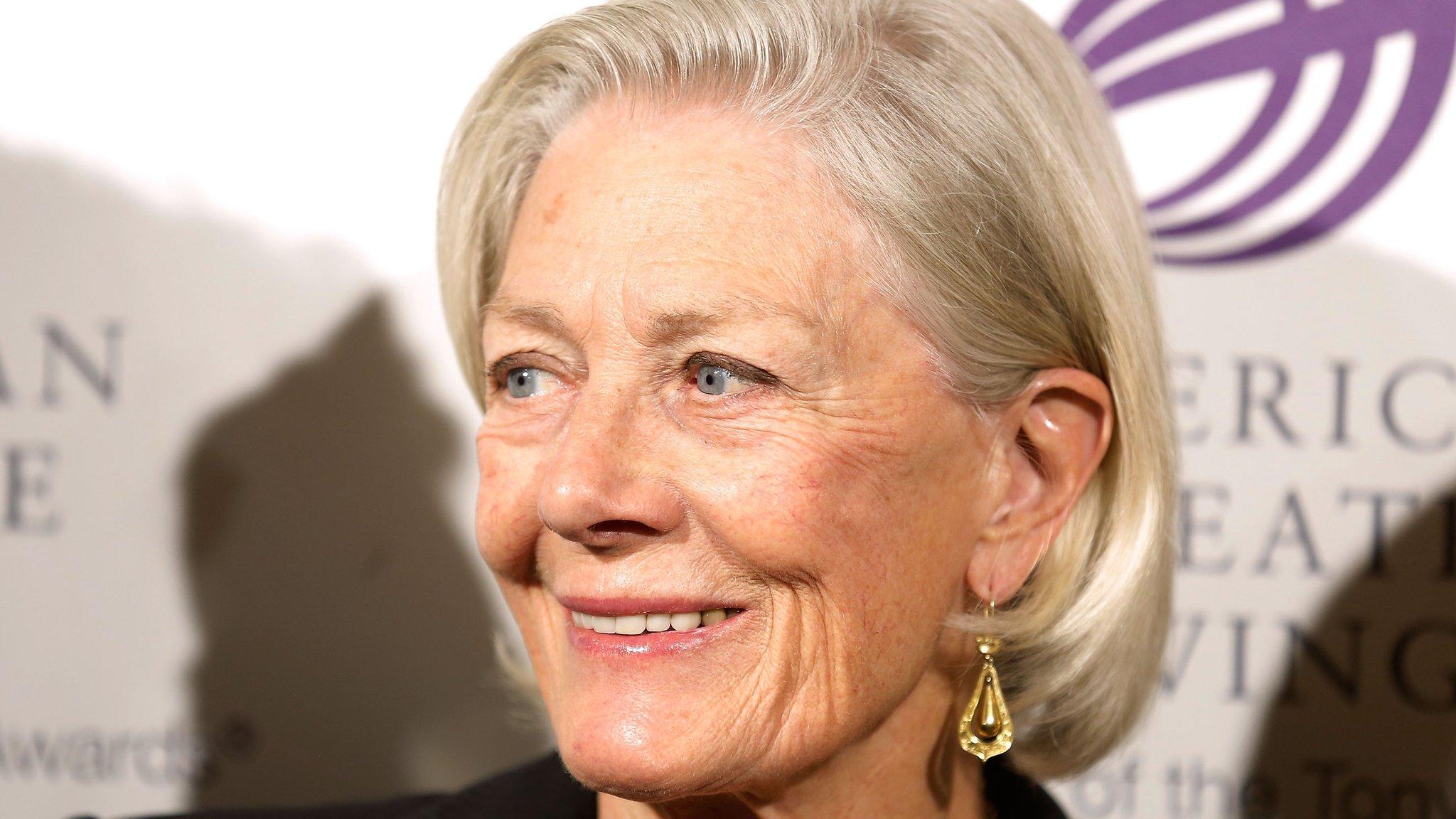
- Published11 November 2015
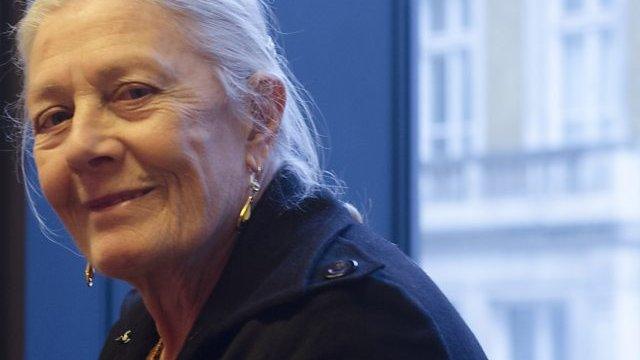
- Published18 May 2017
